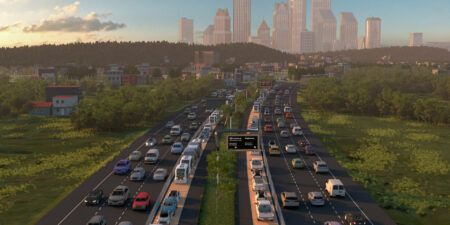German automotive technology supplier Bosch is continuing to drive forward its transformation into a provider of mobility services with the establishment of a new Connected Mobility Solutions division.
The new Bosch division will bring together over 600 associates to develop and sell new digital transportation services, including vehicle sharing, ridesharing and connectivity-based services for car drivers.
The plan is for the new division to further extend the company’s existing portfolio, such as mobility services that send alerts about wrong-way drivers, and turn smartphones into car keys. The division has already started work on three projects involving ridesharing, electric scooter sharing, and electromobility services to reduce ‘range anxiety’.
Bosch has recently acquired the USA-based ridesharing startup Splitting Fares Inc. (SPLT), which has developed a platform that companies, universities or municipal authorities can use to arrange ridesharing for their staff.
This B2B approach is aimed directly at commuters, as the SPLT app brings together people that want to share a ride to the same workplace or place of study. Within seconds, an algorithm locates a suitable rideshare, calculates the fastest route through traffic, and assumes the previously time-consuming task of coordinating the departure point, departure time, best route and passengers.
The division will work with Bosch subsidiary COUP, which has provided electric-scooters for rent in Berlin, Germany, since 2016. After introducing e-scooter sharing to Paris, France, last year, the service will be launched in Madrid, Spain, later this year, bringing the total number of COUP e-scooters to 3,500.
The division will further develop a comprehensive system of connected services for electric cars using the Bosch Automotive Cloud Suite.
To help eliminate range anxiety, the company is developing web-based services that will let intelligent electric cars know precisely when their power will run out, and where they can find their next charge.
As the electric drive is connected to the cloud, the system can produce an extended range forecast using an algorithm that factors in vehicle data such as current battery charge, energy consumption of heating or air conditioning, and the driver’s driving style, as well as information from the vehicle’s surroundings, including the current traffic situation and topographical data for the route ahead.
“Connectivity will fundamentally change how we get from A to B, and in the process, it will help to solve today’s traffic problems. We are using it to realize our vision of emissions-free, stress-free and accident-free mobility,” explained Bosch chairman Dr Volkmar Denner. “Connectivity is a way for us to rethink not just the car, but the whole way we use modes of transport.”




